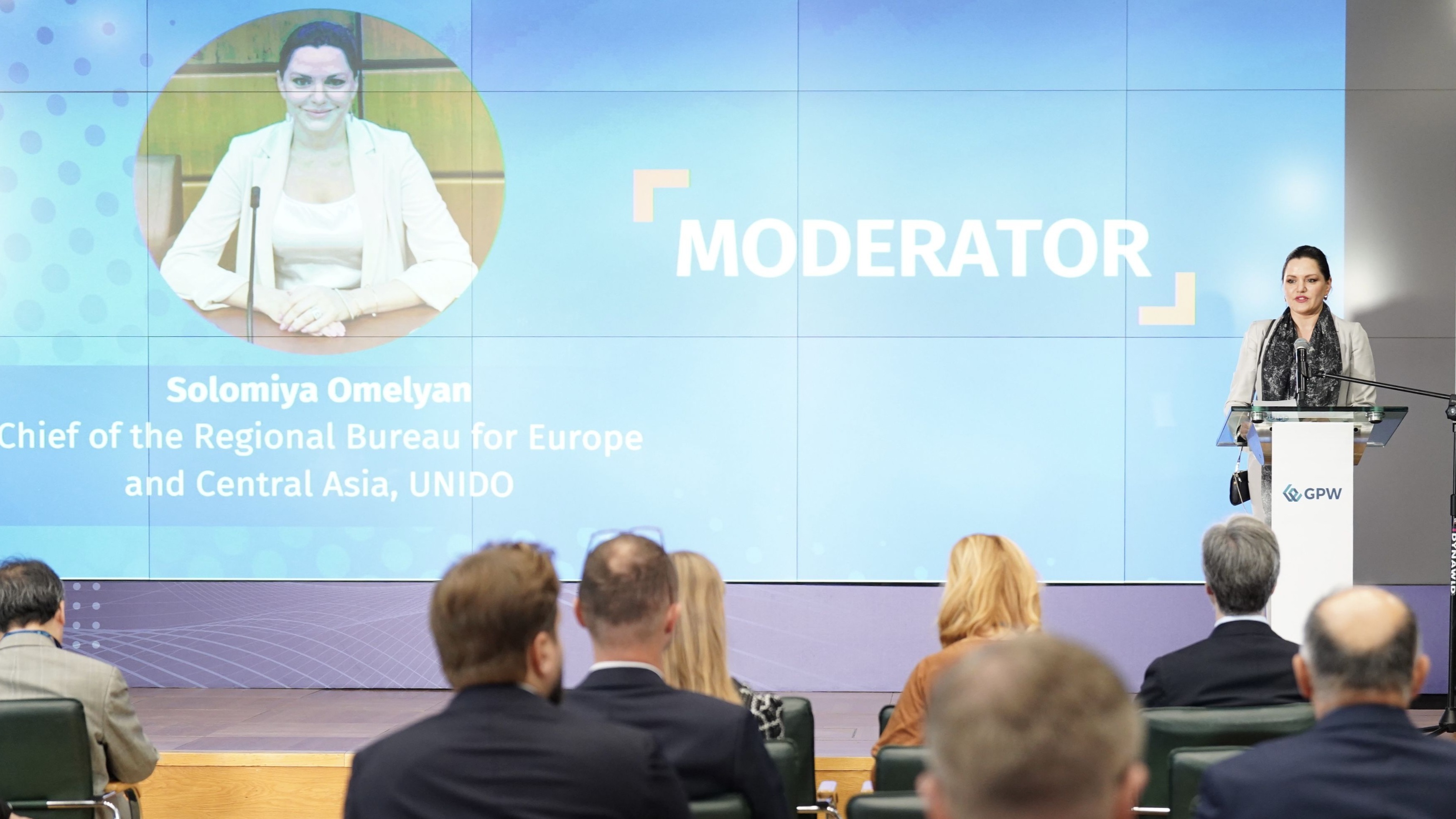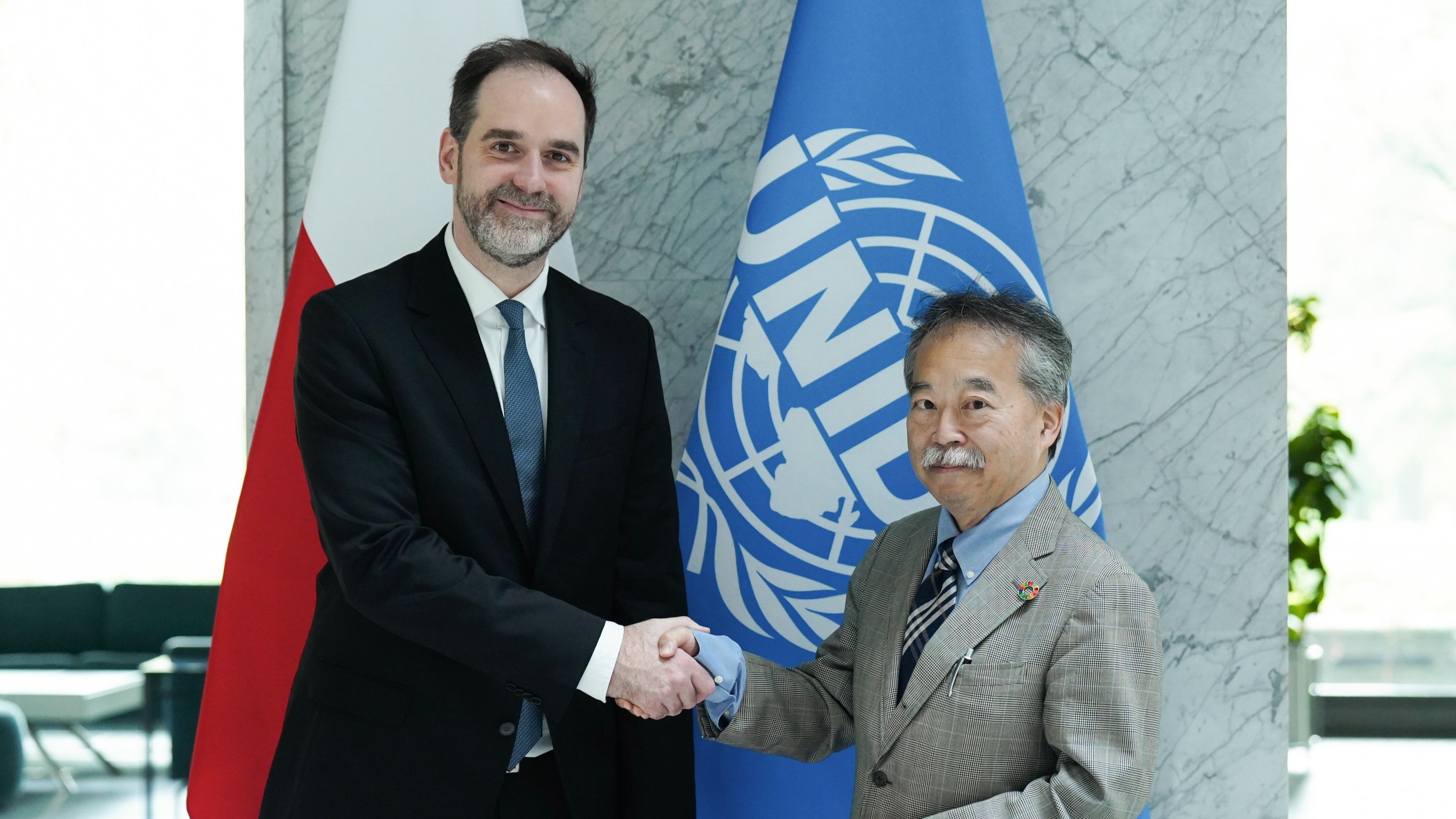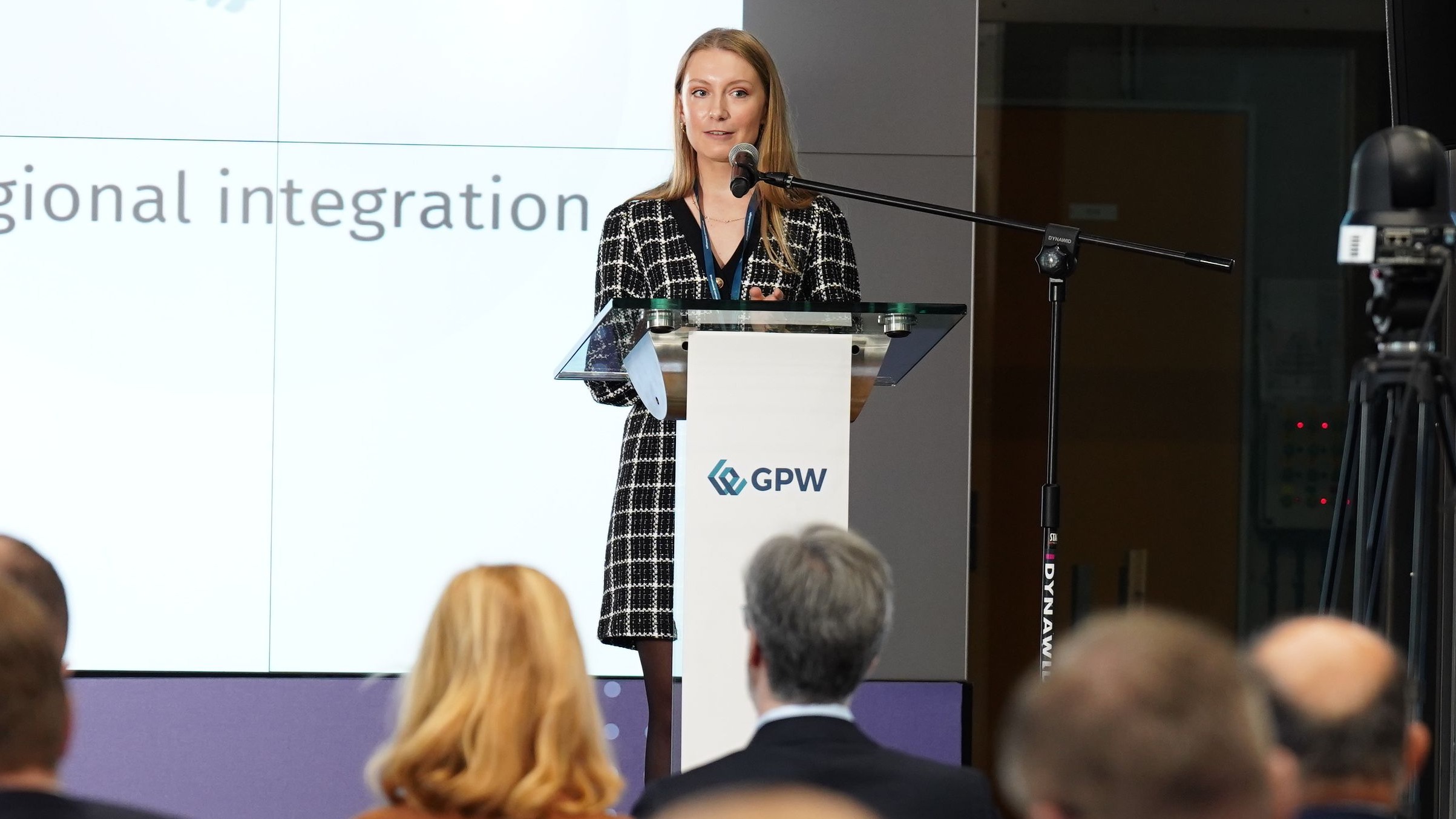

UNIDO’s regional launch of the Industrial Development Report 2024 for Eastern Europe
16 October 2024
Warsaw, 10 October 2024 -
The United Nations Industrial Development Organization (UNIDO) together with the Ministry of Economic Development and Technology of Poland co-organized the regional launch of the Industrial Development Report (IDR) 2024 for Eastern Europe in Warsaw on 10 October 2024.
The IDR 2024, titled “Turning Challenges into Sustainable Solutions: The New Era of Industrial Policy”, emphasizes the critical role of industry in driving economic growth, innovation and job creation, and in advancing the Sustainable Development Goals (SDGs). Amid evolving global challenges and megatrends, the report advocates for modern industrial policies that can help guide nations towards achieving inclusive and sustainable development. The regional launch for Eastern Europe focused the discussion on how a new era of SDG-oriented industrial policies can promote industrialization and innovation (SDG 9) in the region, drawing examples of policies in action from various countries.
In his opening remarks, Yuko Yasunaga, Deputy to the Director General and Managing Director of the Directorate of Corporate Services and Operations at UNIDO, stressed that in an increasingly complex environment, targeted actions and closer regional cooperation and solidarity are crucial. He also highlighted UNIDO’s role as “a platform for countries in the region and development partners to cooperate, transfer technology and knowledge and create lasting partnerships to realize common development objectives.”
Ignacy Niemczycki, Undersecretary of State at the Ministry of Economic Development and Technology of Poland, stated that Poland’s successful structural transformation did not happen by itself, but rather was the result of political pluralism, open and competitive markets, rule of law, encouragement of entrepreneurship, education, setting up regulatory and advocacy bodies and strengthening civil society organizations. He also spoke about Poland’s continuous efforts to remain in tune with the evolving perceptions and aspirations of the community as institution building is a reiterative process. Niemczycki referred to the Eastern European chapter of the IDR and its call for a wider social consensus around the usefulness and need for industrial policy in the region. He stated that “the realization that industrial policy is crucial for Eastern Europe cannot come soon enough in a world of retreating globalization and growing geopolitical tensions”.
During his presentation on the IDR’s key findings, Alejandro Lavopa, Research and Industrial Policy Officer at UNIDO, noted that while Eastern Europe is progressing positively in energy access, employment and infrastructure development, there is significant potential for improvement in innovation, clean energy and economic growth. Despite heterogeneity in the region, digitalization, nearshoring, clean energy production and regional integration present key opportunities to accelerate progress towards the SDGs in Eastern Europe.
Zuzana Zavarská, Economist at the Vienna Institute for International Economic Studies (WIIW), presented the current industrial policy landscape and policies in action in Eastern Europe highlighting case studies from Montenegro, Czechia, Serbia and Slovakia and concluded with three crucial components for successful industrial policies in the region: policy continuity, government collaboration with various stakeholders and regional coordination.
The panel discussion was moderated by Solomiya Omelyan, Chief of the UNIDO Regional Bureau for Europe and Central Asia. Speakers discussed how industrial policy can advance SDG progress in Eastern Europe, opportunities arising in the region and the key to successful industrial policies.
Konstancja Piątkowska, Director of the Economic Analysis Department at the Ministry of Economic Development and Technology of Poland, talked about the importance of bottom-up processes when designing and implementing Smart Specialization Strategies (S3), whereby governments, the private sector and academia are included in the policymaking process and encouraged to cooperate. Piątkowska noted the need not only for domestic cooperation but also for regional-level engagement, particularly if one wants to increase the competitiveness of Europe as a whole.
Jan Kobliha, Director of the Sectoral Expertise and Industrial Policy Department at the Ministry of Industry and Trade of the Czech Republic, discussed the country’s ongoing strategies, including one to support semiconductors, where Important Projects of Common European Interest play a crucial role. He also addressed some of the bottlenecks to the implementation of industrial policy, such as budgetary restrictions for innovation and the need to find compromises among different stakeholders, including governments, the private sector and academia.
Jelena Vasić, Head of the Centre for Strategic Analyses at the Chamber of Commerce and Industry of Serbia, highlighted digitalization as an opportunity to accelerate progress in the region and discussed Serbia’s experience, where technoparks have been key to fostering innovation. They have provided a platform of exchange between diverse stakeholders, strengthening domestic industries and fostering the development of business services for the international market, with the latter growing above 17% annually from 2019 to 2023. She stated that Serbia has recently ranked 53rd in innovation out of 133 countries according to WIPO’s Global Innovation Index.
Emil Hajiyev, Deputy Chairman of the Executive Board at the Economic Zones Development Agency of Azerbaijan, talked about the key policies that Azerbaijan has put in place for the success of its eight industrial parks and one economic zone. These policies include legal and regulatory frameworks to protect investors, provide tax and customs incentives, easy access to well-equipped infrastructure and strong governmental support. The attraction of foreign direct investment in strategic areas, such as automotive and pharmaceutical, has allowed local producers in Azerbaijan to move beyond domestic markets. Hajiyev also remarked regional cooperation as key to designing region-wide policies, improving the efficiency of logistics and developing skills.
Yasunaga closed the event by highlighting that “industrial policy is not a relic of the past but rather a new horizon for the future”.
To read the latest issue of UNIDO’s policy brief series please see: The new era of industrial policy in Eastern Europe: from SDG assessment to policy solutions
The full report and overview of the IDR 2024 can be found at https://www.unido.org/idr2024
For more information on the IDR, please contact: Alejandro Lavopa


